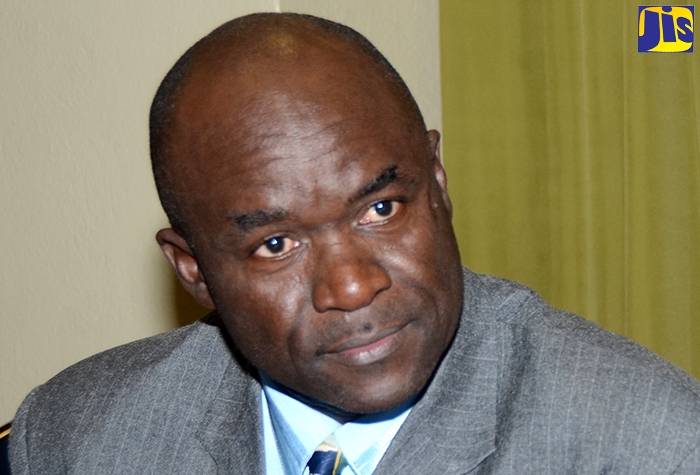Jamaica: Support for gradual resumption of economic activities
By Douglas McIntosh From JIS

Several business leaders are underscoring the importance of the Government’s measured approach to facilitating a gradual resumption of economic activities that have been curtailed since March, due to the coronavirus (COVID-19) outbreak.
They argue that this is imperative to achieve a balance between the phased full reopening of the economy and preventing the possibility of spurring further potential spikes in COVID-19 infections, of which confirmed cases rose to 502 as at Sunday (May 10).
Sustained heightened comprehensive testing and strict adherence to protocols, such as social distancing and thorough handwashing and sanitising, are among the measures they continue to emphasise as necessary to ensure the seamless resumption of industry and commerce.
Speaking at a digital media briefing last week, Prime Minister, the Most Hon. Andrew Holness, said the Administration is taking steps to facilitate the economy’s reopening, commencing with agriculture and construction, for which exemptions were announced.
Additionally, he said correspondence was dispatched to all agencies under the Ministry of Economic Growth and Job Creation, informing them that efforts must be made to clear the backlog for approval of all building projects in order to accelerate these activities.
The Prime Minister further advised that the Government is working on a policy to facilitate the possible reopening of more than 10,000 bars, which were ordered closed in March, in accordance with the Disaster Risk Management Act, 2020, as part of measures to curtail the spread of COVID-19.
Tourism Minister, Hon. Edmund Bartlett, has also indicated that a protocol, which will facilitate the tourism industry’s reopening, is almost complete and will be rolled out shortly.
Small Business Association of Jamaica (SBAJ) President, Hugh Johnson, describes the announcement as a “good move on the part of the Government”, while emphasising the importance of strict adherence to and execution of health protocols and safeguards.
“We support the move… and believe that’s the only way to go. I don’t think COVID-19 will be gone [for now], so we will need to learn to operate with it for the time being,” he tells JIS News.
Against this background, Mr. Johnson says heightened reinforcement of existing measures and protocols and the development of new ones, where necessary, spearheaded by the Ministry of Health and Wellness, will be crucial to the overall undertaking.
He contends that increased COVID-19 testing will “enable us to have a better appreciation of exactly where we are on that trajectory… [whether] we are going up or coming down on that curve”.
“I believe that the information would give us a better comfort level as it relates to where we are. But, notwithstanding, I think it’s a good move to gradually reopen the economy,” Mr. Johnson tells JIS News.
Business analyst, Warren McDonald, says the “underlying desire” to gradually reopen the economy is understandable, adding that the move to this end by the Government is welcome.
He emphasises the need for a “better understanding” of the extent of the virus’ prevalence throughout the population, citing more robust testing and rigorous contact tracing “to try and curtail further spread”.
“I think that [heightened testing and contact tracing] are some of the pre-conditions that we need to have… even as we talk about the [full] reopening of the economy, which, I think, has to be on a sector by sector [basis],” he argues.
Mr. McDonald believes this will help to fuel a “feeling of confidence going forward”.
“We are in an era of uncertainty, and anything that can sort of give us a little confidence about the way forward will be well appreciated by everybody… businesses, small people, everybody,” he adds.
Mr. McDonald, nonetheless, believes that persons are, to a great extent, “doing a reasonably good job” in adhering to the hygienic measures, social distancing protocols, and nightly curfew stipulations.
“We’re just hoping that [others in] the general population [who are not conforming] will buy in and follow suit,” he adds.
Jamaica Employers’ Federation (JEF) President, David Wan, who also welcomes the announcement, says the decision going forward “must [be underpinned by] a weighing of the risks of reopening in terms of decreasing the infections versus trying to get the economy back to some semblance of where it was before”.
“So, my assessment is that it is a calculated risk… of trying to balance the risk of decreasing the spread of COVD-19 versus trying to make sure that we don’t fall into an economic malaise that is much harder to get out of later on; so it’s a balancing act,” he tells JIS News.
Mr. Wan argues, however, that if the undertaking is properly managed “and if we all persistently and consistently stick to the sanitising, social distancing, and masking, I think, we can and should be able to progress reasonably… once we stick to our part of the bargain”.


The JEF President also cites the move to expand COVID-19 testing as pivotal to the way forward.
Minister of Health and Wellness, Dr. the Hon. Christopher Tufton, announced during a digital media briefing last week that persons will soon be able to book appointments to be tested for COVID-19, as the Ministry further expands testing options.
“If they only stick to a limited geographical area and limited demographics [and] don’t spread out the tests, these may give you an erroneous view of what prevails in terms of the extent of infections. Making the tests all-encompassing [will] better determine how prevalent the virus is,” Mr. Wan says.
While arguing that “you can’t force the test on anyone”, he maintains, “We have to ensure that the tests of samples cover all the demographics and geography.”
SOURCE: JIS





